
Turgut Kerem TUNCEL - Specialist, AVIM
20.01.2015
On January 13th, 2015 six members of the Avestisyan family in Gyumri were found shot to death in their beds in the same house. The only survivor was a six-month old boy, who passed away few days later because of the wounds he received during the incident. In the crime scene, an AK-74 rifle, 5.45mm cartridges, a magazine with bullets and military boots were found. Reportedly, on the boots the name Valeri Permyakov was written. Before long, Valeri Permyakov, a nineteen years old Russian serviceman in the Russian 102th Military Base in Gyumri was apprehended by the Russian border guards near the Armenia-Turkey border (later on some Armenian officials claimed, Permyakov was apprehended by the joint action of the Russian border guards and the Armenian police). Permyakov confessed the murder under custody in the Russian military base in Gyumri. The recent Gyumri massacre is the third instance of similar kind. In 1999, two intoxicated Russian soldiers from the same base opened fire on the people in a market place and killed two. In 2013, a mine killed two kids near the base.
The Gyumri bloodbath caused a shock wave in Armenia. People took the streets to protest the murder, which eventually evolved into clashes between protestors and police. The events resulted in custody of around 60 people and over 20 people, including policemen, hospitalized. Among the detained in Yerevan, there were Lusine Sahakyan (a professor of Turkology at the Yerevan State University), Tigran Xzmalyan (a famous film-maker) and Alek Yenikomshiyan (an ASALA veteran, who was blinded as a result of the explosion of a bomb that he was making in a hotel room in Geneva on October 3, 1980). The latter two are also public faces of the diaspora-sponsored Sardarapat Movement that seeks a political revolution in Armenia. As events escalated, the member of the former Karabakh Committee of the late 1980s-early 1990s and Ter- Petrosyan’s (Armenia’s first president) national security adviser until 1993 Ashot Manucharyan appealed to diaspora to help to quiet down the events. The French-Armenian community urged the President Sargsyan and the Catholicos Karekin II to give an account of their silence at the first day of the incident.
The Russian 102th Military Base in Armenia was established in 1995 to function until 2020. Whereas, the Russian military bases in Georgia and Uzbekistan, and the Gabala radar base in Azerbijan were closed in 2006, 2012 and 2013, respectively, in 2010 the operation of the base in Gyumri was extended to 2044. Today, the Gyumri base is one of the four Russian military bases outside of the Russian Federation with those in Belarus, Kirgizstan and Tajikistan. Russian Federation has another base in the annexed-Crimea. According to the agreement between Armenia and the Russian Federation, utilities and expenses of the Gyumri base is on Armenia. At the end of 2014, Armenia has spent a total of 42 million USD for this base. Recently, this base host around 3000 personnel.
The common demand of the protesters was the handover of Permyakov to the Armenian authorities to be tried and jailed in Armenia. In fact, that was a demand that revealed a legal complication. The Article 4 of the Agreement on Matters of Jurisdiction and Mutual Legal Assistance Relating to the Russian Military Base Stationed in the Territory of the Republic of Armenia foresees investigation of crimes committed in the territory of Armenia by the personnel of the base by the Armenian legal bodies. The Article 14.1 of the Criminal Code of the Republic of Armenia also allocates the right and responsibility of the investigation to Armenia. On the other hand, the Article 61.1 of the constitution of the Russian Federation outlaws extradition of the citizen of the Russian Federation to another state. Yet, the Armenian lawyer Norayr Narikyan argues, since the crime was committed in the Armenian territory, this article is not valid for the case of Permyakov. So far, the Russian side has showed no sign of willingness to hand-over Permyakov to the Armenian authorities. This intensified the anger of the many in Armenia and even led some to believe that Russia intends cover the murder and let Permyakov go without proper punishment. These suspicions forced some pro-government politicians to declare that they saw the soldier in jail in the base. The crowds who lost their confidence in the government asked for the video records of Permyakov in jail.
Armenian authorities unwilling for a tension with their Russian counterparts did not push for the extradition of Permyakov. Only after tension had aroused in Armenia, Armenia’s prosecutor General Gevorg Kostanyan made an ambiguous declaration about the issue which failed to satisfy anyone. As a way out, Armenian officials mentioned the possibility of a joint investigation and trial, the feasibility of which is highly contested as some argue this is technically not possible. An interesting suggestion for the joint investigation came from Gagik Harutyunyan, who said it was better to carry out the investigation with the Russian Federation since, Harutyunyan claimed, Russian Federation was more experienced in such cases.
Besides the legalistic issues, the murder triggered a political discussion on the Armenia-Russian Federation relationship that initially flamed by the inertia of the President Sargsyan, the Catholicos Karekin II and the law enforcement bodies to give expected reactions to the Russian side with respect to the controversy over the extradition of Permyakov and condemning the crime. The public was outraged for not declaring a day of mourning for the victims, to which the Armenian officials reacted by saying this was not a tradition in Armenia. The severest criticism to the government and the Catholicos came from the Bloc of Shoushi Battalion Veterans NGO. This NGO in their statement accused Armenian authorities of “purposefully leading the country to colonization and slavery”. Many other oppositional politicians and groups joined the band, yet with a calmer rhetoric, and argued the murder and its aftermath displayed the partiality of the Armenian sovereignty on the Armenian territory. The fact that on January 12th, Russian soldiers launched a manhunt in the streets of Gyumri with their guns, Russian Federation’s refusal of a compromise as regards to the question of the extradition of Permyakov and to share information with the Armenian authorities, the reluctance of the Armenian authorities’ to push for it have been the main factors in the rising concerns about the loss of sovereignty. Most likely, as an effect of the advocacy of Armenia’s recent official membership to the Eurasian Economic Union that met with challenge from the society through the arguments about the security needs of Armenia, Russia-sceptics began questioning whether the Russian military base in Armenia really strenghtens or weakens the national security.
The pro-government and pro-Russian circles reacted to criticisms by the warning about the “ethnic-coloring” of the murder and “undue political evaluations” that harm Armenia-Russian Federation relations. Russian ambassador to Armenia Ivan Volinki also stated the same concerns. Certainly, the warning about the “ethnic coloring” of the murder and its abuse by certain political parties is not without reason. Yet, the intention to cover up the controversial aspects of the Armenian-Russian alliance, in which Russia appears as the ‘big-brother’ cannot go unnoticed, as well, in these ‘politically correct’ statements. Interestingly, the ARF-Dashnaksutyun, the champion of the Armenian Cause, i.e., free, united and independent Armenia, and the radical opponent of the ‘Soviet-Russian yoke’ joined this group. Against those who ask for an official apology from the Russian Federation, ARF-Dashnaksutyun’s spoke person Armen Rustamyan said there was no need for an apology. Alexander Iskandaryan, the head of the Caucasus Institute, tried to trivialize reactions by saying protests was just an expression of the temporary fury.
It is apparent that in Armenia there are defenders of the current state of Armenia-Russia Federation relations as many as those who oppose it. Both the allegedly clandestine economic and political relations between the Armenian oligarchs and Russia and sincere ideological-political convictions may have their share in these arguments. In either case, national security in relation to the Karabakh conflict with Azerbaijan and the neighboring Turkey is the main canon of the arguments of this camp. In fact, security issue forms the basis of the arguments of some engaged in the recent debates on the Gyumri murder.
Larisa Alaverdyan, a public activist and the head of the Against Legal Arbitrariness NGO, argued that carrying debates to the geopolitical arena and demands of the revision of the Armenia-Russian Federation relations was detrimental as, according to her, they met the interests of Turkey and Azerbaijan. Alaverdyan’s expression “those who planned this tragic event”, on the other hand, manifested the conspiracy-oriented thinking of her and some of the Armenian elite. The Gyumri-born architect Andranik Davtyan expressed his doubts of a “deliberate provocation” by pointing out the ‘Azeri threat’ and its ally Turkey in case of the removal of the Russian military base. The conspiracy theories fall into three groups as those pointing out the West, some factions in the Russian polity, and Azerbaijan and Turkey. Although, conspiracy theories are the favorite of mostly the pro-government and pro-Russian circles that draw attention to the potential of this event to damage the relations between Armenia and Russian Federation, pro-Western people like Stepan Grigoryan, the head of the Analytical Centre on Globalisation and Regional Cooperation, too, alleged possible conspiracies. In fact, Grigoryan went further from his pro-Russian counterparts and warned about a likely plot of Turkey at the centennial of the 1915.
The aftermath of the murder of the Avestisyan family in Gyumri by the Russian serviceman from the Russian 102th Military Base Valeri Permyakov, first and foremost, reveals the impotency of the Armenian government in dealing with difficulties that Armenia faces in consequence of its foreign policy choices. Moreover, it shows displeasure, distress and alienation among some sections of the society as the reflections of Armenia’s foreign policy in the domestic sphere. The allegations over the potential Azeri and/or Turkish plots that come from political actors or analysts with significantly diverse views are consequential for demonstrating the wide-spread perception of ‘the Turk’ that not only obstructs realistic assessments, but also rational debate between Armenia and Azerbaijan and Turkey.
© 2009-2025 Center for Eurasian Studies (AVİM) All Rights Reserved
No comments yet.
-
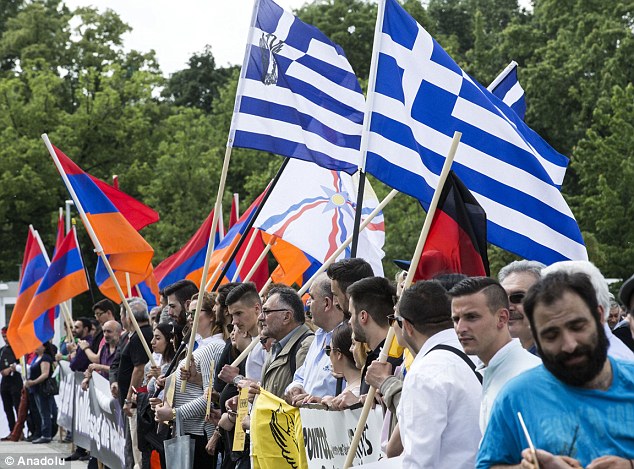 PONTIC GREEK GENOCIDE LOBBY FOLLOWS THE FOOTSTEPS OF THE ARMENIAN GENOCIDE LOBBY
PONTIC GREEK GENOCIDE LOBBY FOLLOWS THE FOOTSTEPS OF THE ARMENIAN GENOCIDE LOBBY
Turgut Kerem TUNCEL 07.06.2017 -
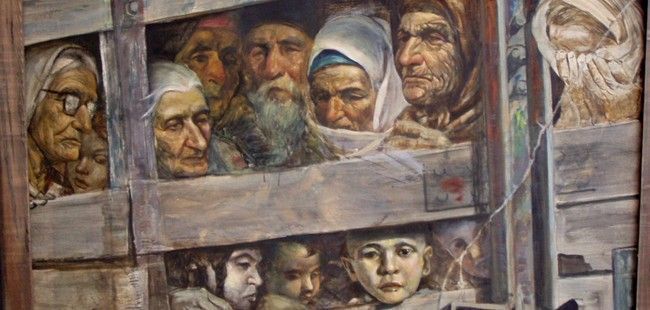 THE FORCED EXILES OF THE CRIMEAN TATARS AND THE CIRCASSIANS
THE FORCED EXILES OF THE CRIMEAN TATARS AND THE CIRCASSIANS
Turgut Kerem TUNCEL 24.05.2017 -
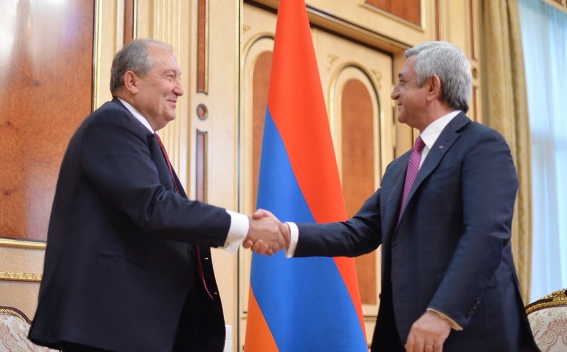 THE POLITICAL GAMBIT OF SERZH SARGSYAN
THE POLITICAL GAMBIT OF SERZH SARGSYAN
Turgut Kerem TUNCEL 10.04.2018 -
 PASHINYAN CALLS ON ARMENIAN DIASPORA TO BEHAVE RESPONSIBLY
PASHINYAN CALLS ON ARMENIAN DIASPORA TO BEHAVE RESPONSIBLY
Turgut Kerem TUNCEL 04.10.2024 -
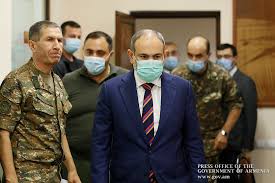 DEVELOPMENTS IN POST-2020 KARABAKH WAR ARMENIA AND THEIR IMPLICATIONS - II: THE BRAWL BETWEEN PASHINYAN AND THE GENERAL STAFF
DEVELOPMENTS IN POST-2020 KARABAKH WAR ARMENIA AND THEIR IMPLICATIONS - II: THE BRAWL BETWEEN PASHINYAN AND THE GENERAL STAFF
Turgut Kerem TUNCEL 10.03.2021
-
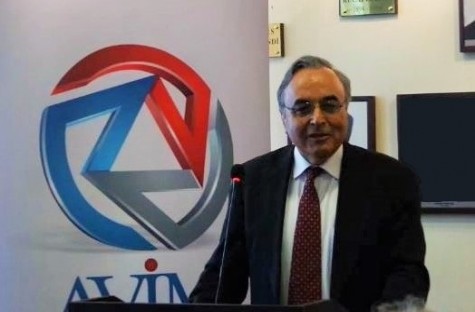 A CALL FROM NAMIBIA ON HIS HOLINESS, POPE FRANCIS
A CALL FROM NAMIBIA ON HIS HOLINESS, POPE FRANCIS
Alev KILIÇ 12.05.2015 -
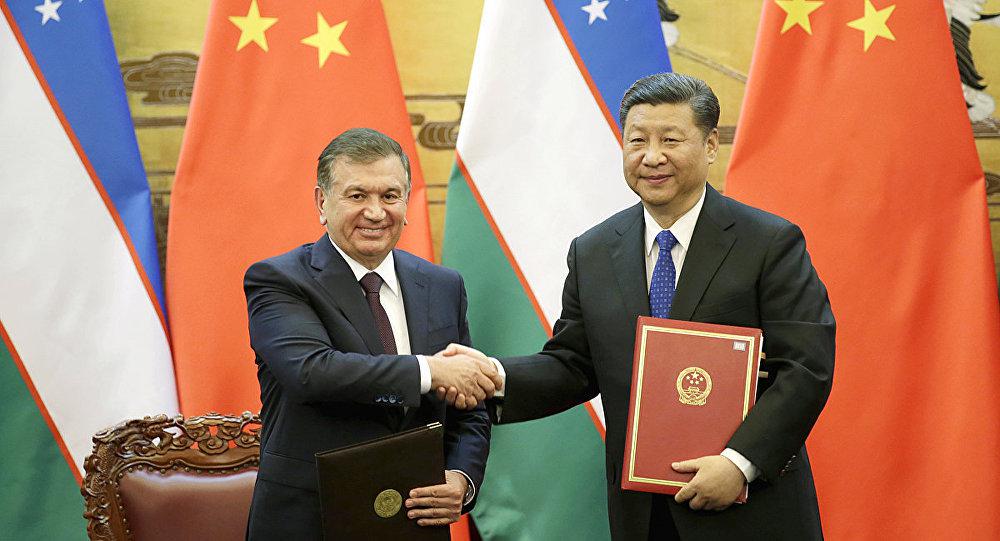 AN EVALUATION OF THE STRATEGIC AGREEMENT BETWEEN CHINA AND UZBEKISTAN
AN EVALUATION OF THE STRATEGIC AGREEMENT BETWEEN CHINA AND UZBEKISTAN
Selenay Erva YALÇIN 15.03.2024 -
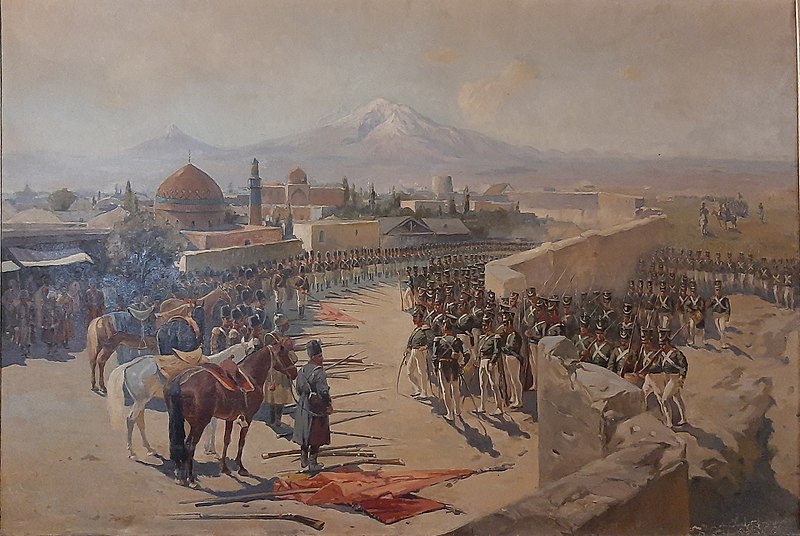 A NEW TENSION EMERGING IN THE SOUTH CAUCASUS CONCERNING THE ISSUE OF RELIGIOUS REPRESENTATION
A NEW TENSION EMERGING IN THE SOUTH CAUCASUS CONCERNING THE ISSUE OF RELIGIOUS REPRESENTATION
İlaha KHANTAMİROVA 31.07.2025 -
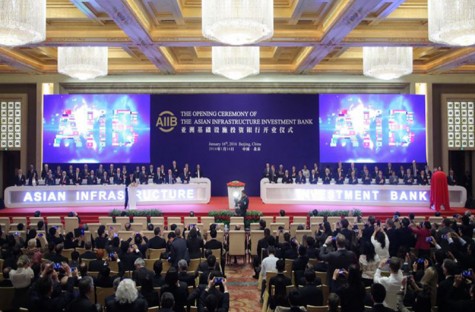 TURKEY BECAME THE 11th LARGEST PARTNER OF THE NEW ASIAN INFRASTRUCTURE INVESTMENT BANK
TURKEY BECAME THE 11th LARGEST PARTNER OF THE NEW ASIAN INFRASTRUCTURE INVESTMENT BANK
Ali Murat TAŞKENT 21.01.2016 -
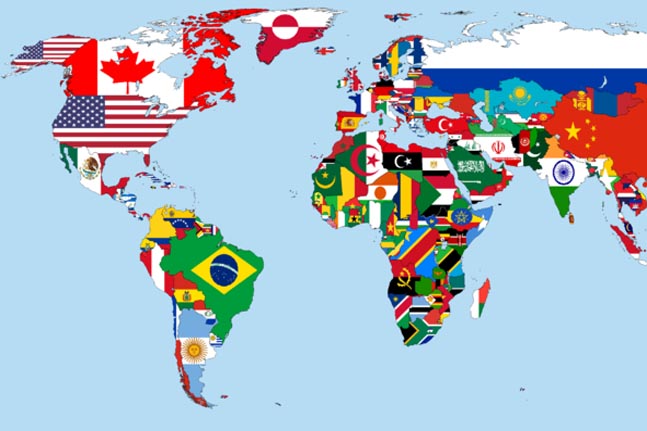 EUROPEAN CURE=ARMENIAN AFFLICTION: PRONOUNCING HATE SPEECH UNDER THE GUISE OF NATIONALISM
EUROPEAN CURE=ARMENIAN AFFLICTION: PRONOUNCING HATE SPEECH UNDER THE GUISE OF NATIONALISM
Teoman Ertuğrul TULUN 09.10.2018
-
25.01.2016
THE ARMENIAN QUESTION - BASIC KNOWLEDGE AND DOCUMENTATION -
12.06.2024
THE TRUTH WILL OUT -
27.03.2023
RADİKAL ERMENİ UNSURLARCA GERÇEKLEŞTİRİLEN MEZALİMLER VE VANDALİZM -
17.03.2023
PATRIOTISM PERVERTED -
23.02.2023
MEN ARE LIKE THAT -
03.02.2023
BAKÜ-TİFLİS-CEYHAN BORU HATTININ YAŞANAN TARİHİ -
16.12.2022
INTERNATIONAL SCHOLARS ON THE EVENTS OF 1915 -
07.12.2022
FAKE PHOTOS AND THE ARMENIAN PROPAGANDA -
07.12.2022
ERMENİ PROPAGANDASI VE SAHTE RESİMLER -
01.01.2022
A Letter From Japan - Strategically Mum: The Silence of the Armenians -
01.01.2022
Japonya'dan Bir Mektup - Stratejik Suskunluk: Ermenilerin Sessizliği -
03.06.2020
Anastas Mikoyan: Confessions of an Armenian Bolshevik -
08.04.2020
Sovyet Sonrası Ukrayna’da Devlet, Toplum ve Siyaset - Değişen Dinamikler, Dönüşen Kimlikler -
12.06.2018
Ermeni Sorunuyla İlgili İngiliz Belgeleri (1912-1923) - British Documents on Armenian Question (1912-1923) -
02.12.2016
Turkish-Russian Academics: A Historical Study on the Caucasus -
01.07.2016
Gürcistan'daki Müslüman Topluluklar: Azınlık Hakları, Kimlik, Siyaset -
10.03.2016
Armenian Diaspora: Diaspora, State and the Imagination of the Republic of Armenia -
24.01.2016
ERMENİ SORUNU - TEMEL BİLGİ VE BELGELER (2. BASKI)
-
AVİM Conference Hall 24.01.2023
CONFERENCE TITLED “HUNGARY’S PERSPECTIVES ON THE TURKIC WORLD"









